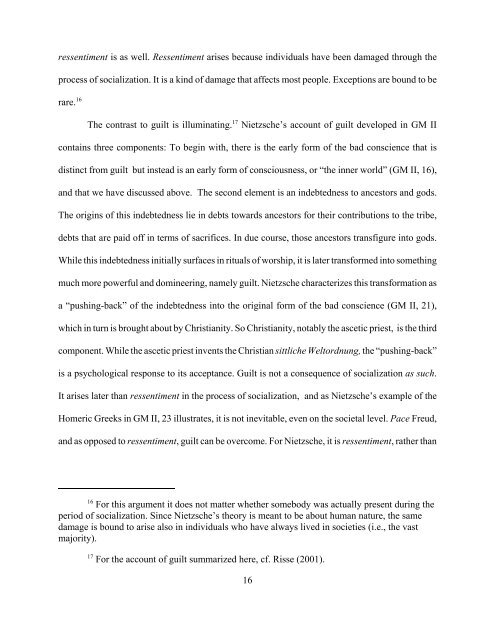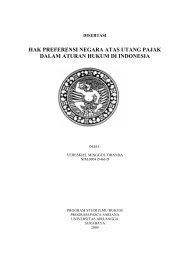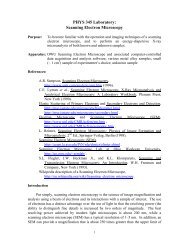Nietzsche's Naturalistic Ethics - UNAIR | E-Book Collection
Nietzsche's Naturalistic Ethics - UNAIR | E-Book Collection
Nietzsche's Naturalistic Ethics - UNAIR | E-Book Collection
You also want an ePaper? Increase the reach of your titles
YUMPU automatically turns print PDFs into web optimized ePapers that Google loves.
essentiment is as well. Ressentiment arises because individuals have been damaged through theprocess of socialization. It is a kind of damage that affects most people. Exceptions are bound to berare. 16The contrast to guilt is illuminating. 17 Nietzsche’s account of guilt developed in GM IIcontains three components: To begin with, there is the early form of the bad conscience that isdistinct from guilt but instead is an early form of consciousness, or “the inner world” (GM II, 16),and that we have discussed above. The second element is an indebtedness to ancestors and gods.The origins of this indebtedness lie in debts towards ancestors for their contributions to the tribe,debts that are paid off in terms of sacrifices. In due course, those ancestors transfigure into gods.While this indebtedness initially surfaces in rituals of worship, it is later transformed into somethingmuch more powerful and domineering, namely guilt. Nietzsche characterizes this transformation asa “pushing-back” of the indebtedness into the original form of the bad conscience (GM II, 21),which in turn is brought about by Christianity. So Christianity, notably the ascetic priest, is the thirdcomponent. While the ascetic priest invents the Christian sittliche Weltordnung, the “pushing-back”is a psychological response to its acceptance. Guilt is not a consequence of socialization as such.It arises later than ressentiment in the process of socialization, and as Nietzsche’s example of theHomeric Greeks in GM II, 23 illustrates, it is not inevitable, even on the societal level. Pace Freud,and as opposed to ressentiment, guilt can be overcome. For Nietzsche, it is ressentiment, rather than16 For this argument it does not matter whether somebody was actually present during theperiod of socialization. Since Nietzsche’s theory is meant to be about human nature, the samedamage is bound to arise also in individuals who have always lived in societies (i.e., the vastmajority).17For the account of guilt summarized here, cf. Risse (2001).16
















